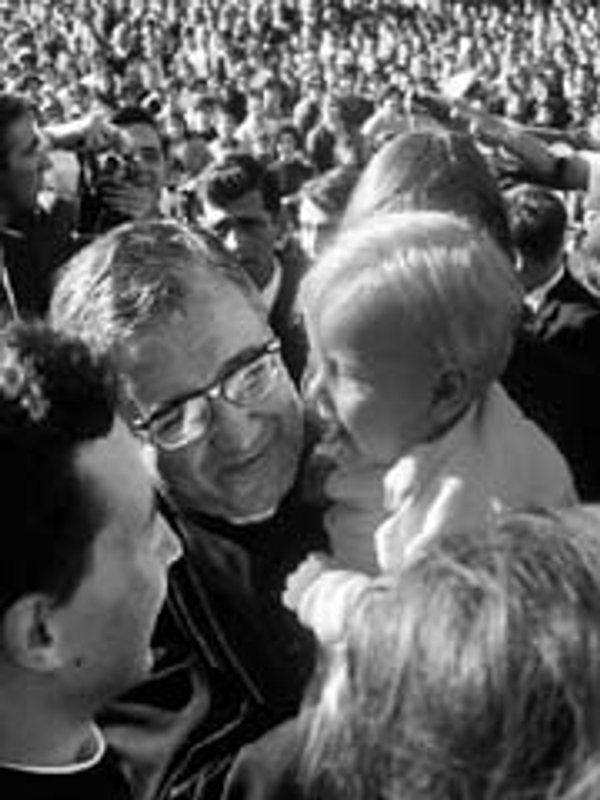On October 6, 2002, Pope John Paul II canonized Josemaría Escrivá in St. Peter’s Square, describing his teachings as “timely and urgent today.” I had the great privilege of attending this canonization, along with several hundred thousand other people.
St. Josemaría was born in Spain in 1902, was ordained in 1925, and died in 1975. He is best known for founding Opus Dei in 1928 and for his books of spirituality, such as The Way, which has sold nearly 4 million copies.
The Church’s newest saint stands for the message that our ordinary activities and duties can and should be the anvil on which extraordinary sanctity is hammered out. In his canonization homily, the Pope called him “the saint of the ordinary.”
We all have a tendency to split our lives into competing spiritual and non-spiritual compartments. When heaven is on our mind, we view our secular activities as roadblocks on our path to holiness. “I would have time to be a better Christian if only I weren’t so busy with my job and my family.” And when our everyday affairs are on our mind, we imagine that striving for sanctity would prevent us from enjoying ourselves or fulfilling our secular duties.
St. Josemaría tells us, however, that holiness comes through not in spite of all our regular activities and duties: “Understand this well: there is something holy, something divine, hidden in the most ordinary situations, and it is up to each one of you to discover it. Our ordinary everyday life, devoid of human glamour, can be a path to holiness.”
He didn’t just leave us with an airy theory. St. Josemaría gave us countless practical ways to turn the idea into reality, in his books and in the teachings he gave to the spiritual family he founded, Opus Dei. And now that he is in heaven, he can help us along on our journey to holiness even more effectively, if we seek his intercession for our daily concerns.
St. Josemaría’s life also presents a model to us, when we face life’s various difficulties. At first, he met with considerable opposition when he preached that secular life is a vocation and that lay men and women can and should be just as holy as priests and nuns. Some people went so far as to say he was preaching heresy. And Opus Dei was sometimes accused of secrecy because members followed St. Josemaría’s idea that the key to lay holiness is carrying out secular activities for love of God, not adopting external signs of religiosity and distinguishing themselves from the ordinary Joe and Betty.
But St. Josemaría wasn’t daunted by the difficulties. He kept up his preaching and pastoral work to promote the message of lay holiness, and eventually things turned around. St. Josemaría’s message and his spiritual family, Opus Dei, have now spread all around the world, and have helped millions of people grow closer to God.
Pope John Paul II has called St. Josemaría a precursor of the Second Vatican Council and has affirmed that he founded Opus Dei through divine inspiration. I can certainly confirm that St. Josemaría’s teachings and Opus Dei have been a divine inspiration in my life.
Re-printed with the permission of the Denver Catholic Register.
